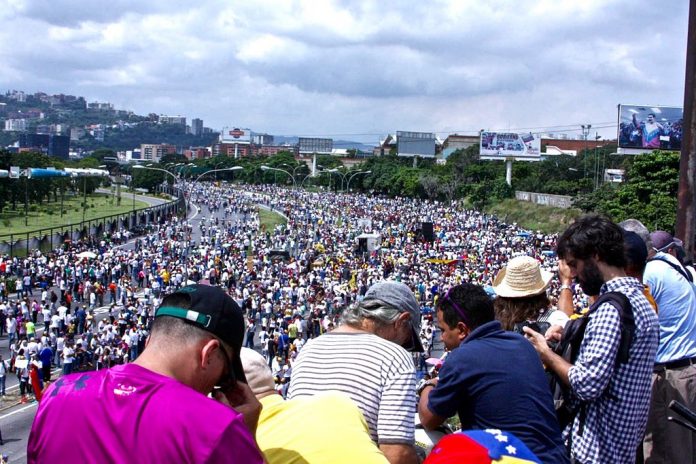Is a military intervention in Venezuela viable and pertinent?
The previous question represents today a new scenario that had ended in 1989 with the invasion of Panama. The ghosts of the Cold War cross Latin America, but this time, Venezuela has become a crucial point of reviving something that seemed to be underground; a military intervention.
The United States has put options and variables on the table about the possibility of sending troops and entering militarily in Caracas through Colombia, however, that decision would bring certain negative implications and the chances of success of a transition scenario on Venezuela would vanish. Based on the above, it is necessary to understand that the regional context and the dynamics in terms of contemporary security have been transformed in a transcendental manner and the security dilemmas do not correspond to old paradigms of regular confrontations. An armed incursion in a way manages to legitimize the martyr’s discourse of the dictator, would increase the problem of irregular migration and the exacerbation of violence would overwhelm the capacities of the States.
First of all, it must be borne in mind that Venezuela would be in a position to use all forms of struggle, that is, the use of militias and unconventional, irregular methods and war by proxy techniques accompanied by an armed population, not uniformed and with handmade weapons. This would make the neighborhood complex by irregular tactics of combat and evasion of responsibility if they were issues relevant to human rights or international humanitarian law. In geopolitical variable, the Washington proposal has not calculated the relevant factors of the border geography between Colombia and Venezuela, a porous zone, with thick jungle, territory competed by several armed actors where the States are foreigners in their own territory and it is a place that resembles more of a black hole. If an irregular confrontation is effective, the calculations would be unlikely but the probable negative effects.
A military intervention would convulse the regional geopolitics and generate an entropic violence that would reach to further destabilize the growing crisis. In this way, the military option must be evaluated by the decision makers in Washington and Bogotá. In other words, that hypothesis will not be executed because the negative effects tend to be greater than the positive ones. For Trump’s proposal to be effective in sending 5,000 men capable of entering an armed confrontation to a complex and asymmetric scenario in Caracas, it must have approval from Congress, and Washington should have the support of the UN Security Council, and in both scenarios it has partisan fractures and vetoes of great powers that would be legitimate and legal obstacles, respectively.
On the other hand, the Venezuelan issue involves other global players such as China and Russia. Both Beijing and Moscow understand perfectly that Venezuela is just a space on the chessboard in Latin America, it is not a piece. That is, both powers, despite having geostrategic interests in the region, also have close, interdependent and strategic relations with the United States and both Putin and Xi Jinping know very well that they have their own “venezuelas” in their areas of interest. Finally, a military intervention in Venezuela is not viable and would be contrary to the tendencies of rational decisions regarding international security. The more uncertainty, complexity, irregularity and dynamics at constant crossroads have a geopolitical scenario, the response to the crisis should not occur on a regular, zero-sum basis, with regular factors and elementary questions of basic readings in convulsive environments.
When Donald Trump warns about militarily intervening in Caracas, he does not know that military decisions have certainties in their beginnings, but you are full of uncertainties about their outcomes. If the military proposal becomes effective, a Pandora’s box would be opened that is difficult to close and the future of Venezuela would be even more uncertain.
In that order of ideas, Trump must know that the world has changed and the solution to the crisis in Venezuela has no formula in generating a new military crisis.
The views and opinions expressed in this article are those of the author and do not necessarily reflect the official policy or position of The Geopolitics.
 This work is licensed under a Creative Commons Attribution-NonCommercial-NoDerivatives 4.0 International License.
This work is licensed under a Creative Commons Attribution-NonCommercial-NoDerivatives 4.0 International License.

The author is the coordinator of the Center for Security and Democracy and an Associate Professor at the School of Politics and International Relations, Sergio Arboleda University. He has a Ph.D in International Law and Masters in National Security and Defense.


